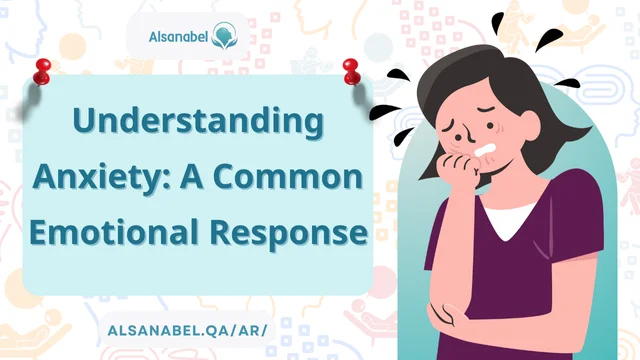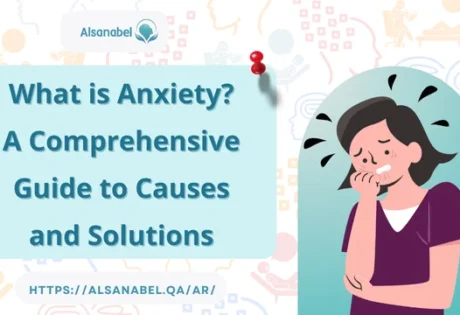
Anxiety is a universal experience, often described as a sense of unease or worry about future events. However, while many people feel anxious in certain situations, not everyone fully understands the complexities of anxiety. This article delves into the anxiety meaning, offering a thorough explanation of what anxiety is, its effects on mental and physical health, and how it manifests in daily life.
Understanding Anxiety: A Common Emotional Response

The Basic Nature of Anxiety
At its core, anxiety explained as a natural reaction to stress or potential threats. It triggers the body’s fight-or-flight response, preparing individuals to deal with challenges or dangers. In everyday life, anxiety can serve as a motivator, pushing people to perform well or meet deadlines. However, when anxiety becomes excessive, it can interfere with daily functioning and overall well-being.
The Broader Scope of Anxiety
Anxiety isn’t limited to feelings of worry; it often includes physical, emotional, and cognitive symptoms. Understanding these layers is crucial to comprehending the full definition of anxiety and how it affects individuals differently.
How Anxiety Manifests in Everyday Life
Physical Symptoms
Anxiety frequently impacts the body, leading to symptoms such as increased heart rate, shortness of breath, sweating, and muscle tension. These physical responses can be overwhelming, often making individuals feel as though they are losing control.
Cognitive Effects
From overthinking to excessive worry about unlikely scenarios, anxiety significantly affects cognitive processes. Racing thoughts and difficulty concentrating are common manifestations, often hindering productivity and decision-making.
Behavioral Impacts
Anxiety may lead to avoidance behaviors, where individuals actively steer clear of situations that might trigger anxious feelings. This avoidance can gradually limit daily activities, contributing to a cycle of fear and restriction.
Different Forms Anxiety Can Take
Generalized Anxiety
Generalized anxiety is characterized by excessive worry about various aspects of life, such as work, health, or relationships. Unlike situational anxiety, it persists regardless of the presence of specific stressors.
Social Anxiety
Social anxiety manifests as intense fear or discomfort in social situations. Those affected may worry excessively about being judged or embarrassed, often avoiding interactions altogether.
Panic Attacks
Panic attacks are sudden episodes of intense fear that often include physical symptoms like chest pain and dizziness. These can occur unexpectedly or in response to specific triggers.
The Psychological Impact of Anxiety
Emotional Turmoil
Anxiety often brings about a whirlwind of emotions, including fear, helplessness, and frustration. These feelings can create a sense of isolation, as those affected struggle to articulate their experiences.
Strain on Relationships
Anxiety can also affect personal relationships, as loved ones may not fully grasp the struggles of the individual experiencing anxiety. Misunderstandings and a lack of communication can further exacerbate these challenges.
The Link Between Anxiety and Physical Health
Chronic Stress and Its Consequences
Prolonged anxiety can lead to chronic stress, which negatively impacts physical health. From digestive issues to cardiovascular strain, the effects of anxiety are not confined to the mind alone.
Sleep Disruptions
Anxiety often causes sleep disturbances, making it difficult to fall or stay asleep. This lack of rest can contribute to a cycle of fatigue and heightened stress levels.
Effective Ways to Manage Anxiety
Lifestyle Modifications
Incorporating regular exercise, maintaining a balanced diet, and practicing mindfulness can significantly reduce anxiety levels. These small changes, when practiced consistently, can improve overall mental well-being.
Therapeutic Interventions
Cognitive-behavioral therapy (CBT) is widely recognized as an effective treatment for anxiety. Through CBT, individuals learn to identify and challenge negative thought patterns, replacing them with healthier perspectives.
Relaxation Techniques
Breathing exercises, yoga, and meditation are excellent tools for managing stress and reducing anxious feelings. These practices promote relaxation and help regulate the body’s stress response.
When Anxiety Becomes a Disorder
Recognizing the Threshold
While anxiety is a normal response to stress, it becomes a disorder when it is excessive, persistent, and interferes with daily life. This distinction is crucial to fully grasping what is anxiety and understanding when to seek help.
Seeking Professional Help
Consulting a mental health professional at Al Sanabel Specialized Psychiatric Center In Qatar can provide clarity and guidance. They can help determine whether anxiety has escalated into a disorder and recommend appropriate treatments.
The Role of Medication in Managing Anxiety
Options for Treatment
Medications, such as antidepressants and anti-anxiety drugs, can be effective for those experiencing severe anxiety. It’s essential to consult with a healthcare provider to determine the best course of action.
Combining Medication with Therapy
For many, combining medication with therapy yields the best results. This holistic approach addresses both the symptoms and underlying causes of anxiety.
Answering Common Questions About Anxiety

1. What is the difference between anxiety and anxiety disorder?
Anxiety explained as a normal emotional response to stress, while an anxiety disorder involves excessive and persistent worry that disrupts daily life.
2. What are the symptoms of anxiety disorders?
Symptoms include persistent worry, difficulty concentrating, irritability, restlessness, fatigue, and physical symptoms such as rapid heartbeat and sweating.
3. How can I manage my anxiety?
Effective strategies include practicing mindfulness, engaging in regular exercise, seeking therapy, and maintaining a balanced lifestyle.
4. Are there medications for anxiety?
Yes, medications such as selective serotonin reuptake inhibitors (SSRIs) and benzodiazepines are commonly prescribed to manage anxiety symptoms.
5. Can anxiety cause physical symptoms?
Absolutely. Anxiety often manifests physically, causing symptoms like headaches, stomachaches, muscle tension, and a racing heart.
Understanding anxiety meaning is the first step toward managing its impact on mental and physical well-being. While anxiety is a natural response to stress, it can become overwhelming if left unaddressed. Through lifestyle adjustments, therapeutic interventions, and, when necessary, medication, individuals can regain control and improve their quality of life. By recognizing the symptoms early and seeking appropriate support, anyone struggling with anxiety can take meaningful steps toward healing and resilience.

